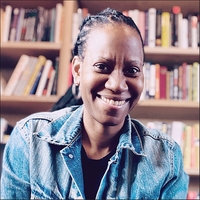Failures of Forgiveness: What We Get Wrong and How to Do Better
Myisha Cherry. Princeton Univ, $27.95 (240p) ISBN 978-0-691-22319-3
Cherry (The Case for Rage), an assistant professor of philosophy at the University of California–Riverside, investigates in this nuanced survey how humans do (or don’t) come to terms with the bitter past. Despite a “narrow definition, amplified in popular culture,” forgiveness involves a constellation of practices and aims, according to Cherry, who contrasts “superficial repair,” or forgiving without tackling the core of the wrongdoing, with a “radical repair” that entails “addressing the root of the problem [and] aiming for change.” Cherry associates the latter approach with such figures as Martin Luther King Jr., who responded with “kindness and generosity” toward a woman who stabbed him in 1958. Elsewhere, Cherry contends that withholding forgiveness can represent a kind of boldness in modern Western society, in which the wronged—especially nonwhites and women—are pressured to publicly “forgive and forget.” Readers can be better “extenders, promoters, and withholders of forgiveness” by understanding its breadth and doing more on either side of the forgiveness equation, whether that means one needs to “fire an employee, cut off a family member, cancel a celebrity, continue therapy, or live with regret.” Referencing the Bible, Shakespeare, and pop culture, Cherry powerfully frames forgiveness as both a philosophical conceit and an individualized practice, and assures readers, “We only have to learn to do forgiveness better, not perfectly.” It’s a first-rate work from a penetrating mind. (Sept.)
Details
Reviewed on: 06/26/2023
Genre: Nonfiction
Open Ebook - 978-0-691-23047-4
Paperback - 240 pages - 978-0-691-23046-7


